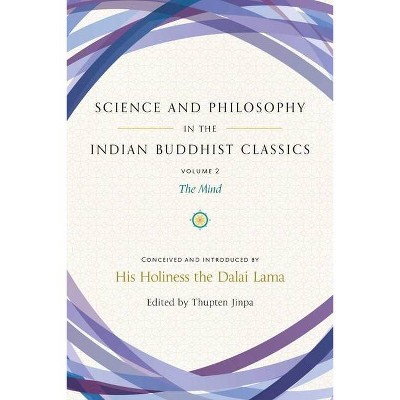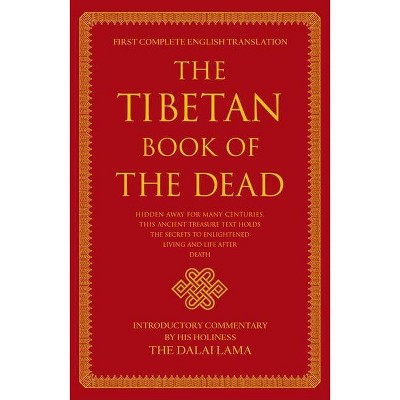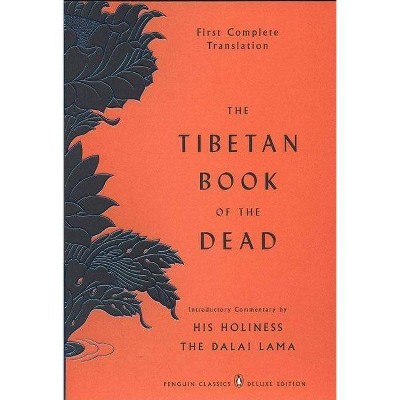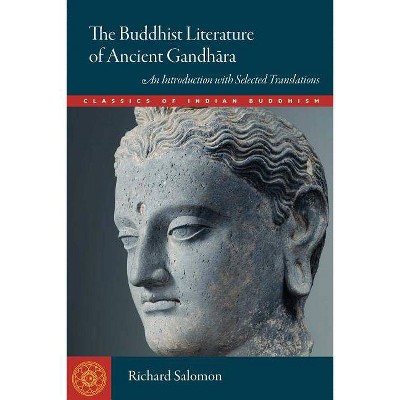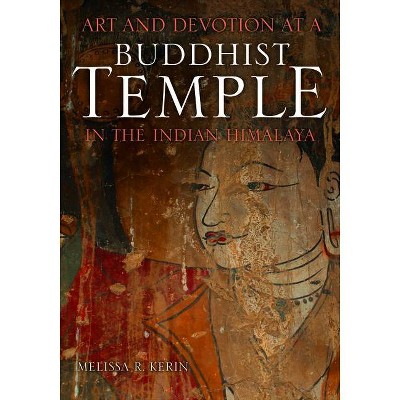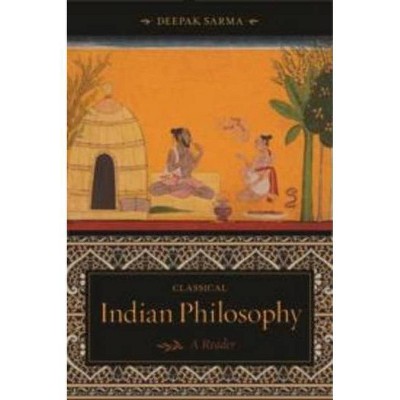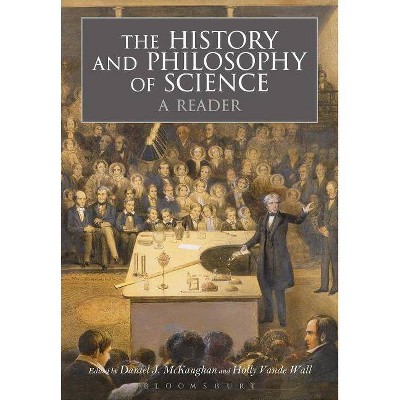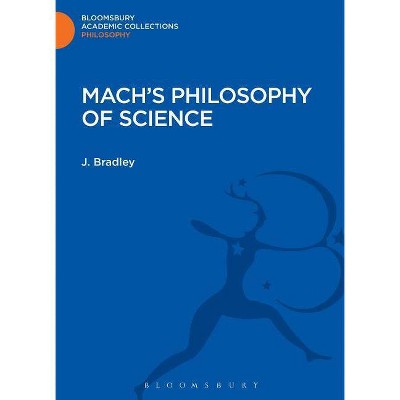Science and Philosophy in the Indian Buddhist Classics, Vol. 1 - by Thupten Jinpa (Hardcover)
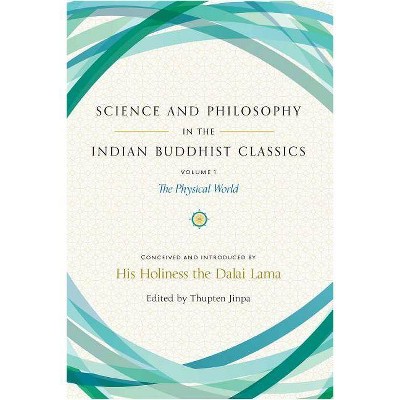
Similar Products
Products of same category from the store
AllProduct info
<p/><br></br><p><b> About the Book </b></p></br></br>Translation of: Phags-yul gyi Nang-pa i gzhung las byung ba i tshan rig dang lta grub kun btus.<p/><br></br><p><b> Book Synopsis </b></p></br></br><b>Explore the nature of our material world in a unique sourcebook, conceived by the Dalai Lama, collecting the scientific observations found in classical Buddhist treatises. </b> <p/>Under the visionary supervision of His Holiness the Dalai Lama, <i>Science and Philosophy in the Indian Buddhist Classics</i> brings together classical Buddhist explorations of the nature of our material world and the human mind and puts them into context for the modern reader. It is the Dalai Lama's view that the explorations by the great masters of northern India in the first millennium CE still have much that is of interest today, whether we are Buddhist or not. <p/> Volume 1, <i>The Physical World, </i> explores the nature of our material world--from the macroscopic to the microscopic. It begins with an overview of the many frameworks, such as the so-called five aggregates, that Buddhist thinkers have used to examine the nature and scope of reality. Topics include sources of knowledge, the scope of reason, the nature and constituents of the material world, theories of the atom, the nature of time, the formation of the universe, and the evolution of life, including a detailed explanation of the early Buddhist theories on fetal development. The volume even contains a brief presentation on early theories about the structure and function of the brain and the role of microorganisms inside the human body. The book weaves together passages from the works of great Buddhist thinkers such as Asanga, Vasubandhu, Nagarjuna, Dignaga, and Dharmakirti. Each of the major topics is introduced by Thupten Jinpa, the Dalai Lama's principal English-language translator and founder of the Institute of Tibetan Classics.<p/><br></br><p><b> Review Quotes </b></p></br></br><br>"<i>Science and Philosophy in the Indian Buddhist Classics</i> will quickly become an invaluable resource for all those interested in a cross-cultural understanding of science and the history of ideas. Volume 1 offers a comprehensive treatment of the physical world drawn from the writings of India's greatest Buddhist philosophers, with an introduction by the Dalai Lama and contextual essays by the eminent scholar Thupten Jinpa. As we seek a multicultural and global perspective on the nature of reality, this volume and those to follow will certainly make a crucial contribution."--Arthur Zajonc, emeritus professor of physics, Amherst College<br><br>"Situated in their rich contexts by a superb set of introductory essays, these classic texts reveal a breadth of original thought and observation that presents the modern reader with challenging concepts but rewards them with novel insights."--Kevan A. C. Martin, Director, Institute of Neuroinfomatics, University of Zurich<br><br>"The genesis of science that took place in South Asia was just as demanding in terms of empirical accuracy, explanatory standards, and theoretical ingenuity as science in the West. Unlike modern science, however, it included the experience of meditation among its basic sources of knowledge. This broadening of the empirical horizon promises to trigger a new Renaissance. We are fortunate that the editors here have offered us such a clear presentation of this exceptional resource."--Michel Bitbol, CNRS (The National Center for Scientific Research), Paris<br><br>"This remarkable set of volumes will be of great interest to any student, scholar, or scientist who wishes to better understand the depth and complexity of the Indian Buddhist tradition. Surprising in their detailed consideration of the senses, particles, time, cosmology, fetal development, and the brain, these volumes are destined to become the resource for cross-disciplinary dialogue between Buddhism and science for many years to come."--Richard J. Davidson, Founder, Center for Healthy Minds, University of Wisconsin-Madison<br><p/><br></br><p><b> About the Author </b></p></br></br><b>His Holiness the Dalai Lama</b> is the spiritual leader of the Tibetan people and a Nobel Peace Prize recipient. He is a beacon of inspiration for Buddhists and non-Buddhists alike. He has persistently reached out across religious and political lines and has engaged in dialogue with scientists in his mission to advance peace and understanding in the world. In doing so, he embodies his motto, "My religion is kindness." <p/><b>Thupten Jinpa</b> was educated in the classical Tibetan monastic academia and received the highest academic degree of Geshe Lharam (equivalent to a doctorate in divinity). Jinpa also holds a BA in philosophy and a PhD in religious studies, both from the University of Cambridge, England. Since 1985, he has been the principal translator to the Dalai Lama, accompanying him to the United States, Canada, and Europe. He has translated and edited many books by the Dalai Lama, including <i>The World of Tibetan Buddhism</i>, <i>Essence of the Heart Sutra, </i> and the New York Times bestseller <i>Ethics for the New Millennium</i>. <p/> Jinpa has published scholarly articles on various aspects of Tibetan culture, Buddhism, and philosophy, and books such as <i>Songs of Spiritual Experience: Tibetan Poems of Awakening and Insight</i> (co-authored) and<i> Self, Reality, and Reason in Tibetan Thought</i>. He serves on the advisory board of numerous educational and cultural organizations in North America, Europe, and India. He is currently the president and the editor-in-chief of the Institute of Tibetan Classics, a nonprofit educational organization dedicated to translating key Tibetan classics into contemporary languages. And he also currently chairs the Mind and Life Institute and the Compassion Institute.
Price History
Cheapest price in the interval: 18.19 on November 8, 2021
Most expensive price in the interval: 18.19 on December 20, 2021
Price Archive shows prices from various stores, lets you see history and find the cheapest. There is no actual sale on the website. For all support, inquiry and suggestion messages communication@pricearchive.us
